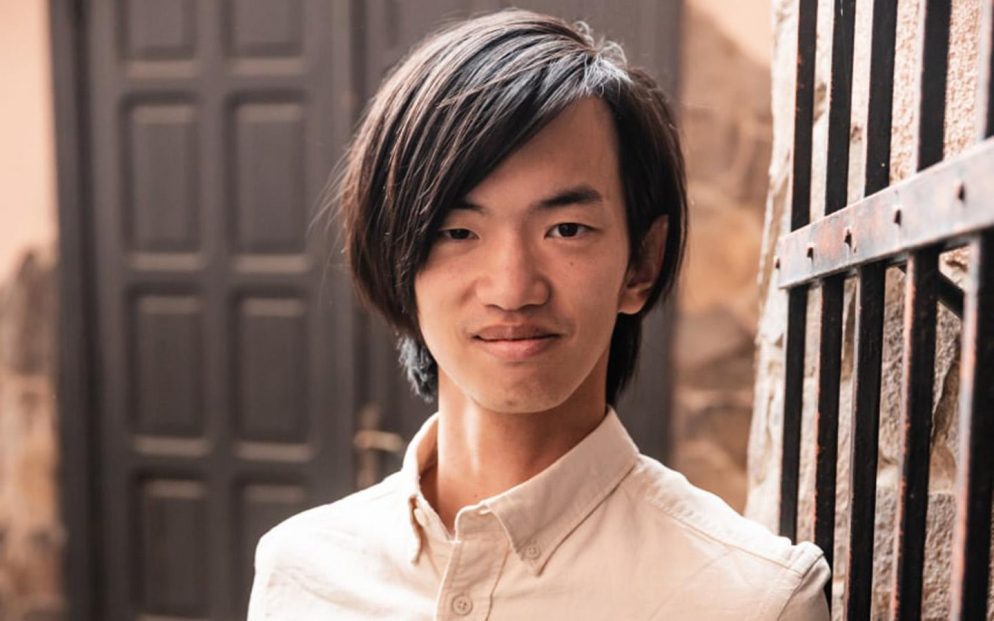
01 Sep Alumni Spotlight – Andrew i-Hsin Yang ’15
Andrew i-Hsin Yang ’15 recently completed medical school in Ukraine. When the Russo-Ukranian War escalated last year, Andrew assisted refugees and displaced persons who flooded his area near the Slovakian border. Advancement and Alumni office intern Jaiveer ’24 recently connected with Andrew over Zoom to find out more about him and his journey, including his relief work in Ukraine, what he values about Woodstock, and what comes next.
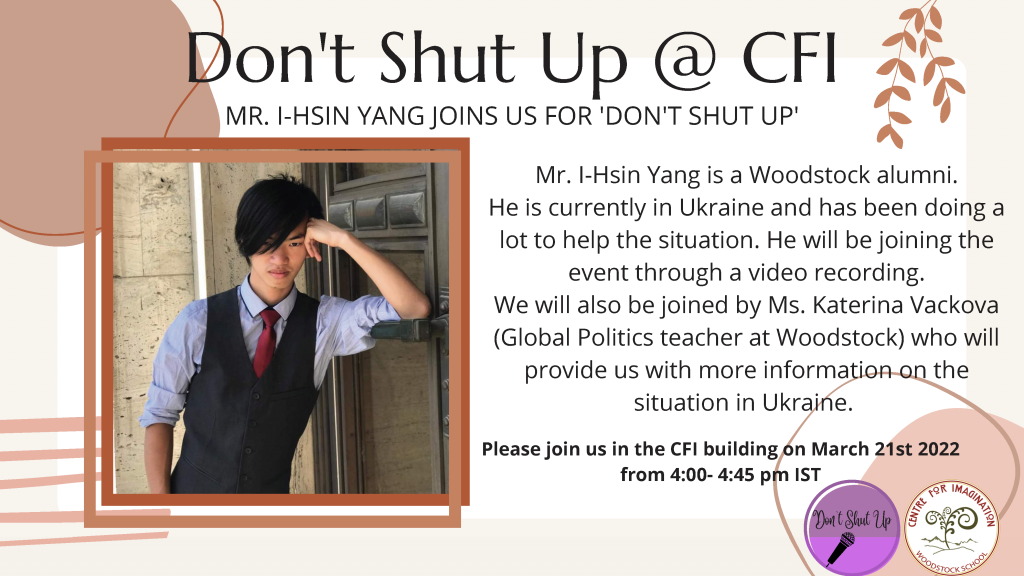
Student-designed poster for Andrew’s virtual session at CFI last year, where he shared some of the on-the-ground realities of working to serve those whose lives have been uprooted by conflict
You have had a very international life! Could you talk about your childhood, places you’ve grown up, and how all of that has helped shape you?
I’ve grown up all over the place. I was born in Taiwan, and for the first nine years I grew up as a fairly typical Taiwanese. At age nine my whole family moved to Pakistan, where I attended an international school. I didn’t speak any English when I first moved to Pakistan. My mom travels a lot for her work, and my family would move with her. I studied in Pakistan for six years while often visiting my mom’s work in Nepal as well. I spent two summers in Nepal learning to be a chef/baker.
I moved to India, joined Woodstock in 10th grade, and graduated three years later. Unfortunately, I was not able to go directly into university for financial reasons. The year after graduation, I traveled to Finland to pass a nursing entrance exam, after which I was successfully accepted into their university. I thought I would be pursuing nursing in Finland. During my stay there, I received my acceptance letter into medical school in Ukraine! So I chose to pursue medicine in Ukraine. I traveled a lot with my family. I had been to around 38 countries before I even turned 20 (now a few more places have been added to the list).
I’ve always felt myself to be a third culture kid (TCK). When I was growing up, the Internet wasn’t as spread, and the media culture was hardly global at that time. Google Translate wasn’t a thing yet, and having grown up in so many cultures I’ve always felt I don’t belong anywhere. Not in Taiwan, not India, not in Pakistan. Yet there’s always a part of me that feels very familiar to the local cultures no matter where I go.
I think the one biggest impact living between cultures has had on me is that I am able to see different points of view, seeing how life is different everywhere, yet at the same time, oddly at its core, fundamentally the same. I knew what actions would be acceptable or rude in certain cultures, and what part of me was really me, rather than just a collective cultural identity. It’s often much easier for me to see the points of view of strangers. Now as a doctor, I see the points of view of my patients.
Life is hard everywhere. No matter where I have traveled or which cultures I’ve lived in ordinary people have always had the same goal: to live their best life, in whatever framework that seems to fit in. I find it easier to love people when their struggles and decisions make sense, irrespective of the cultural lenses. It may seem insane or absurd in one culture, but endearing in another. Ultimately, people want to improve. For myself personally, not having a strict cultural framework has often helped me see and think in new ways and to understand and to love even in seemingly contradictory cultures.
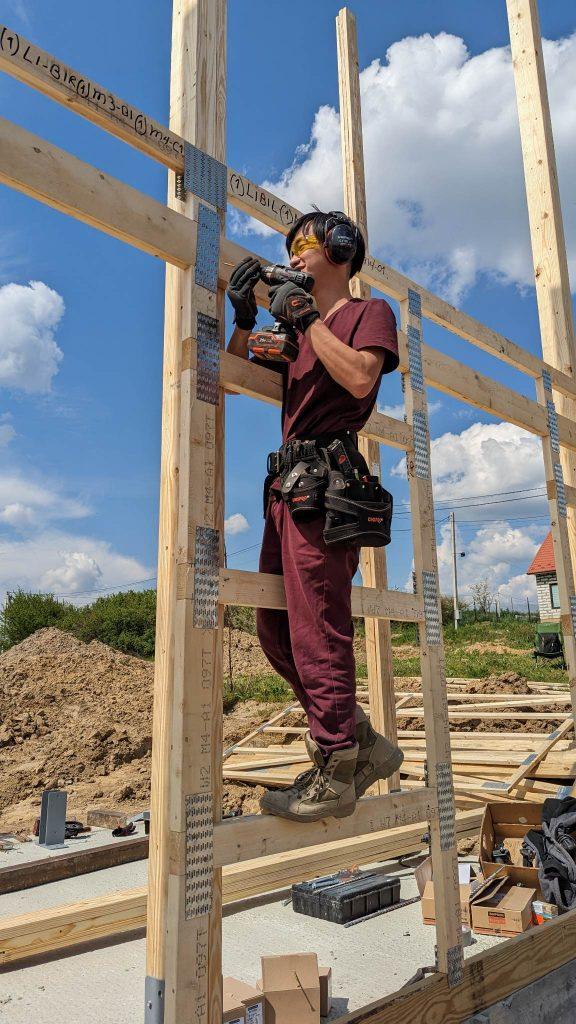
Andrew doing construction work on affordable housing in Ukraine
What have you been doing recently?
Well, I just finished med school at Uzhhorod National University in Ukraine, so I am a doctor now! However, I haven’t done my internship yet. Right now I’m waiting for documents, which is of course difficult because of the quarantine and the war. However, right now what I’m stuck on is I am waiting for Indian government documentation acknowledging Woodstock as a legitimate educational institution so the Ukrainian government can verify my high school diploma and, in turn, grant me my university diploma. Meanwhile, I’ve been an assistant teacher at the medical faculty. I was an unofficial intern, but because I have document problems I am not allowed to join officially yet. So I’ve been there unofficially.
I am building a cafe as kind of a pet project. But it has several purposes. It’s very hard to get a visa during wartime. But this cafe is essentially part of what allows me to stay as a businessman. I still do quite a few things here. I’m still designing houses for refugees. My construction company is still building houses and helping with refugee housing.
At the beginning of the war it was a bit different from now. Then there was a huge surplus of people moving. Now most people are settled. So at the beginning of the war, we were looking at fixing hostels, fixing someone’s living room, right? If someone said, I want to host, but I don’t have a bed, what we did was basically buy a bed, and that solved some of the more immediate housing issues. But for now, what we’re mostly focusing on is the long-term issue. People’s houses are gone, bombed away, and they literally don’t have help. There’s a limit on how long people can live in the tight conditions they have been forced to live in as housing is scarce. Three families in one apartment has been a long-term situation for many, many families.
As a Taiwanese, I have to go back and serve my mandatory military drafts, similar to how it’s done in South Korea. So, I am forced to take a gap year to serve in the military before I can continue with my medical residency. My main passion in life has always been healthy living, the transition from healthy living into a healthy life. And that for me includes housing, agriculture, ecology, as well as the actual design of the spaces that we live in. So I would like to see myself continue that passion. One thing I actually also did this year was that I designed a clinic, an 800 square meter clinic. As a physical rehab center, it’s going to have a psychology ward. And I might hopefully work there myself. I don’t know yet, but I would like to continue medicine, and I would like to continue with housing – particularly those two ideas come back. I hope to see there’s no war. I plan to go into family medicine or internal medicine.
What made you decide to stay back in Ukraine during the war and help refugees?
Aside from med school, something I’ve been doing for a long time is designing houses, particularly equal-living tiny houses. I don’t do tiny houses exclusively, but affordable housing has always been one of my main passions and drives in life. That goes along with medicine, of course. One needs to be able to live before one can live well, and that was a need that the local community had, particularly the Romani community, from which you might know gypsies who live throughout Eastern Europe. So, before the war started I co-started a tiny house company with one of my business partners and a builder. Although I mostly worked on design, I actually built a few houses, too. We were already doing housing for the needy before the war started. When the war started, we realized the refugees were now coming because of the war zones, but they didn’t have a place to stay. They needed affordable housing, didn’t have cash up front, and didn’t have any liquidity they could bring with them. This is a problem that the gypsies had throughout this time, and we thought we were already in a position that could help refugees facing the same kinds of housing issues. So it was a natural transition that happened because of the previous work. I worked with the Ukraine Collective, which provides food, medicine, counseling, and building supplies to those who’ve lost everything. Together we provided housing and food for 544 internationally displaced persons and refugees at the height of the crisis in Ukraine.
How did you manage to balance med school and running a small business while helping everybody out? That’s more on your plate than most of us can even imagine.
Yeah. I’m still doing the same things right now, including renovating the cafe I’m working on. I built all the walls and furniture. I’m actually building a box of tables right now. While working with my tiny house business, I was doing carpentry work at the same time. I can tell you doing semi-architecture design, running a business, and studying medicine together all at once was exhausting. I mean, medicine on its own is exhausting, but with carpentry, and the extensive volunteer work on top of it all, that’s crazy! It really was a miracle to balance!
Recently we have students from Ukraine who have come to Woodstock as Scholars for Peace [anyone wishing to support Woodstock’s Scholars for Peace program can do so here]. With your experience living in Ukraine, and being a part of the culture there, what would you recommend Woodstock do to make our new students from Ukraine feel more comfortable and welcome in Woodstock’s environment?
For the most part, I find Ukrainians to be culturally similar to other Europeans. Except for this whole Russian invasion part, which right now is simply the most sensitive topic. It’s hard for them sometimes to feel what it means to be Ukrainian if it is suppressed by ex-Soviet countries, by the Russian culture on top of the Ukrainian culture. That for them I feel is probably the biggest conflict of identity, but also just social pressure. I think one of the biggest things, at least for my friends here, is giving them the space to grieve. It is wartime, and they might need the space to just say, well, life is absolutely garbage right now. And it’s okay if they need to be hurt, or they need to have the space to sometimes say, “I just can’t deal with the problems I have for today.”
Did anything from your time at Woodstock help you with managing life in Ukraine during the war?
One thing that Woodstock has that many schools don’t is the flexibility of choosing your own passions and projects as part of the curriculum. I think that gives a sense of personal drive. It’s not just a tick box. I mean, of course, there’s still some requirement for that. Before the war in Ukraine, it was the global coronavirus pandemic and lockdown. So while in medical school I went from the pandemic to the lockdown, and then the war started not long after coming out of lockdown. Yeah, that’s a pretty tragic chain of events. I had a very difficult time during my school here in Ukraine, but I think that Woodstock did somewhat prepare me as a student to have some sort of an internal drive to accomplish things, even if the external world is collapsing on its own.
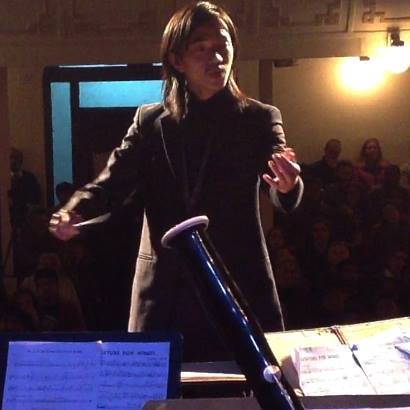
Andrew conducting advanced band at Woodstock
What is one thing about Woodstock that was really memorable – something that you can look back on with pride?
I think for me, particularly, is the skills Woodstock provides. A lot of people think music is not important to the world. Athleticism is not so important aside from personal training and such. But for me, that flexibility of extracurricular activities, not just, you know, the science, it’s the medicine, whatever, is what gives you an idea of how it feels to be in the working world. It might not be playing an instrument all the time, but there’s a lot more to the world than studying a book. And much of that, for me, comes from extracurricular activities. In extracurriculars there is nothing clear. You must learn this information by the test time, by the deadline. There is no clearly cut information that needs to be there. It’s only growth. If you just score one goal in football and that’s it, no, you keep trying to go forward. Same with music, right? You don’t just play a piece of sheet music, and you’re done. No, you always keep going further. And there’s always that next step. And this next step in life, it’s really hard to see. Especially in medicine it’s very hard to see where’s the next step. Like, becoming a doctor is six years away, so you have to kind of be in it for the ride and just look at what’s next. There’s never a clear tick box of, “I want to accomplish this now, and this information I must remember.”
What is one message that you have for people like us who are shielded from the realities of war? One thing that you would say we should value more than we do right now? What do we perhaps take for granted that becomes vital in a conflict situation?
I will tell you what I’m missing the most during wartime, and that for me has been the stability of a schedule. I mean, in school, you’re going from 10th grade, 11th grade, 12th grade in a linear progression, but in wartime, that’s not the case. I have friends who have to skip a year in university. I have friends who can’t enter university because the one they got accepted into is now blown up. They literally don’t have a place to go. My foreign med school friends who are studying here can’t come back because there’s no flight to Ukraine. Getting a Schengen visa for traveling is a complicated issue in itself. And that stability, that schedule really, you miss a lot when there’s no schedule. It might sound so mundane to go from 9th to 10th grade, and that I went from Monday to Friday to get to the weekends. But those are the times when you can do things, right? These are the times when you are able to study, which is your most important thing right now, but also to develop who you are, your skills, your talents, your passions. These are times you can discover what you like. Whereas during wartime, you have no opportunities like that. The only thing people can think about right now is how to make it to tomorrow. Some people are even thinking about where they can sleep for tonight. Which jobs they can get. It’s not a dream anymore. It’s just simply, will somebody give me any job to do at the moment?
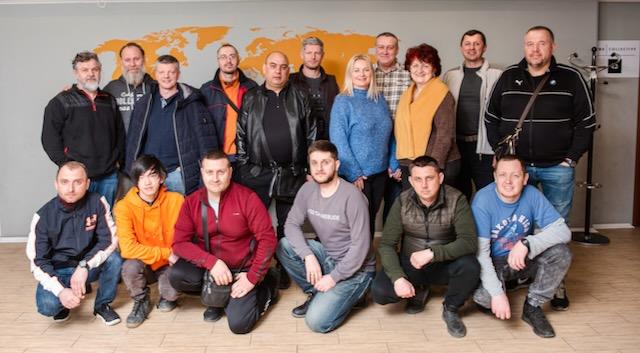
Andrew with fellow volunteers of the Ukraine Collective.
Your passions have a synergy between architecture and medicine which I feel are quite disconnected from each other. One is more math-based and one is more bio-based. It’s really cool to see that you found a connection between things so different. Were you into drawing when you were in Woodstock or something along the lines of that?
Not so much drawing. In terms of designing a house, there’s the mathematical side of it that you must know, but that’s more mechanical to solve the problems that you do have. But most of design is actually seeing what are the criteria we need to solve, and how do we solve them. What materials do we have, what options do we have, and finally, what does it cost? Not just in money, but also in effort as well as a bit of ability. You might see that this broad idea of what I just said about design doesn’t exclusively fit into just housing, right? For example, we have a disease we need to treat. Here we have the options. What are their costs? What are their opportunities and better abilities? These ideas aren’t actually inherently separate. So while I didn’t do any particular drawing by hand in Woodstock, the skill you learn going through this problem is called problem solving. But this idea of how do we find out the exact issues that we need, the criteria to solve as well as how to manage to actually solve them. It’s a universal ability that fits into many fields.
Are you still in contact with your classmates from Woodstock? Throughout your time in Ukraine, have any of them come out to help you and support you?
Yeah, I have a few who I still chat with somewhat regularly. I have one Woodstock friend in particular I reach out to when I have issues with the stability of my own mental health. Just having a friend to talk to makes all the difference in the world. That person can’t necessarily do anything for me while I’m in Ukraine, but just being able to say it out loud and know that I don’t have to bear my burden on my own. I don’t have to bear all that emotion bottled up inside me. And as a doctor and as a social worker for refugees, these are things you can never unload downward, right? Onto your patients, onto the people you’re helping. But you can’t really upload upward either, because there’s nobody there to listen to you. Friends are there not to remove your problem but just to acknowledge that you do have one. And sometimes just to say, “Keep going. You’re doing a great job. Even if there are some problems, ultimately you’ll get there.”
That seems like the most important thing that Woodstock can ever give somebody is a friend who always has your back.
Yes, for sure!
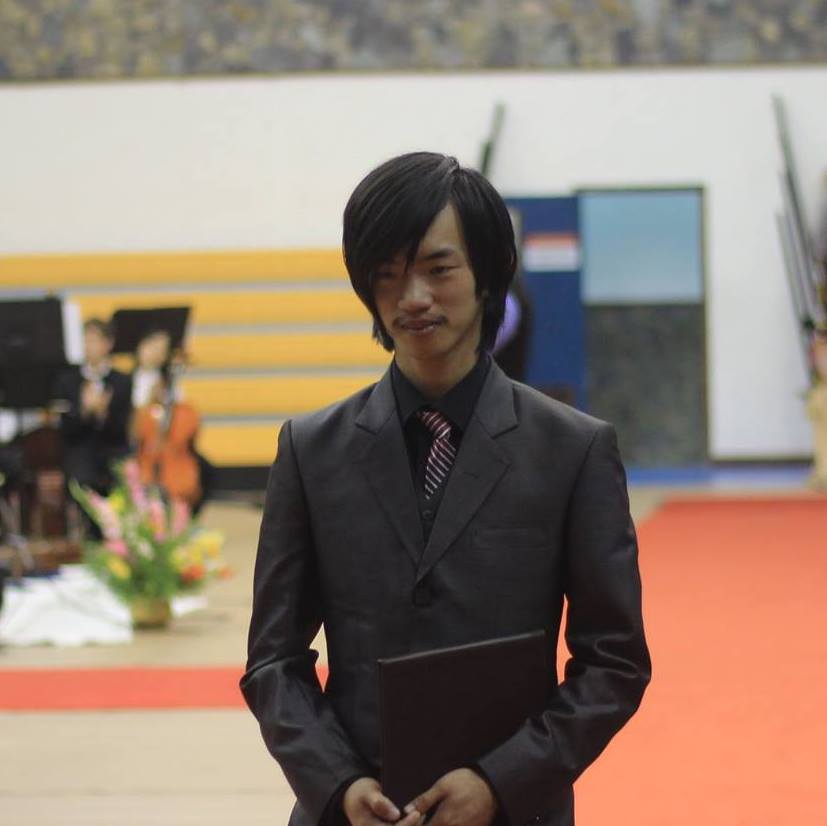
i-Hsin’s Woodstock graduation, 2015
What advice would you give to your younger self in Woodstock, or what advice would you have for current Woodstockers?
If I was able to influence my younger self and current Woodstockers, I would try to create an understanding that life’s path isn’t as singular or straightforward as we are taught to expect – and that can be a wonderful thing. Many blessings in life are found in the detours or only discovered when backtracking a little. A path that made sense for others (perhaps in a different culture) might not necessarily be the only path for me. There are many paths and many destinations. My younger self was so focused on the destination to become a doctor. When I wasn’t able to immediately enter a med school, it felt like the end of my career before it had even begun. Yet now I see that that’s hardly the case! I became a doctor through an unconventional path, and my detours allowed me to explore my other passions in life: loving people, building/designing houses, and carpentry. Had I gone the most conventional route, I would probably have a few hundred thousand dollars of crushing student debt, and certainly would not have been able to start my own construction company. Ultimately, the advice I would give myself is: life isn’t just a destination where we want to be at. Often, life happens on the detours and backtracking. It’s quite okay to take different paths towards a destination. Who knows, maybe you will discover new skills and new friendships. Perhaps you will discover an even better path to an even better destination.[/vc_column_text]
Images gallery






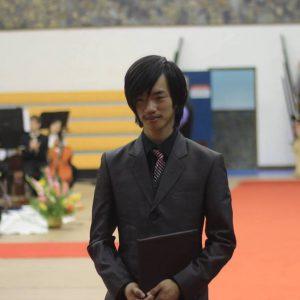
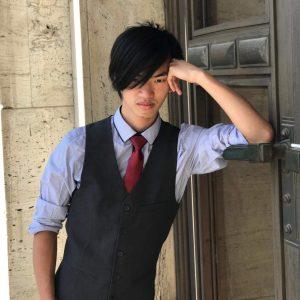
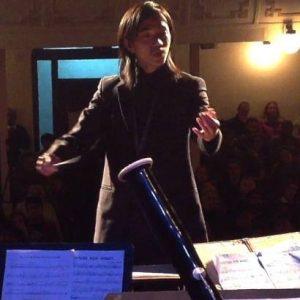
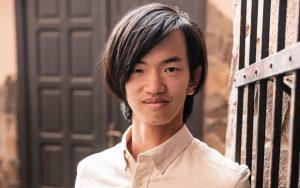
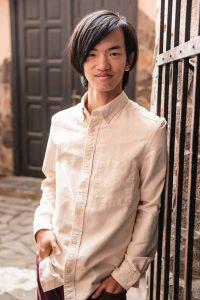
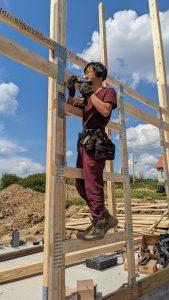
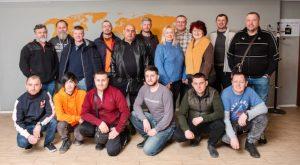
Sue W. Birkinshaw
Posted at 20:14h, 05 SeptemberWhat a brilliant and wise young man. Amazing person. Surely do hope peace comes and you can continue your medical studies and other ambitions.
Ashoke Chatterjee
Posted at 18:58h, 09 SeptemberWhat an amazing journey, so full of accomplishment and wisdom! We have a lot to learn from you!! All good wishes and the hope that yours will be a great Woodstock story! Ashoke Chatterjee (Class of 51)
Ankit Adhikari
Posted at 18:56h, 25 OctoberGood work done in the field. Keep it up.